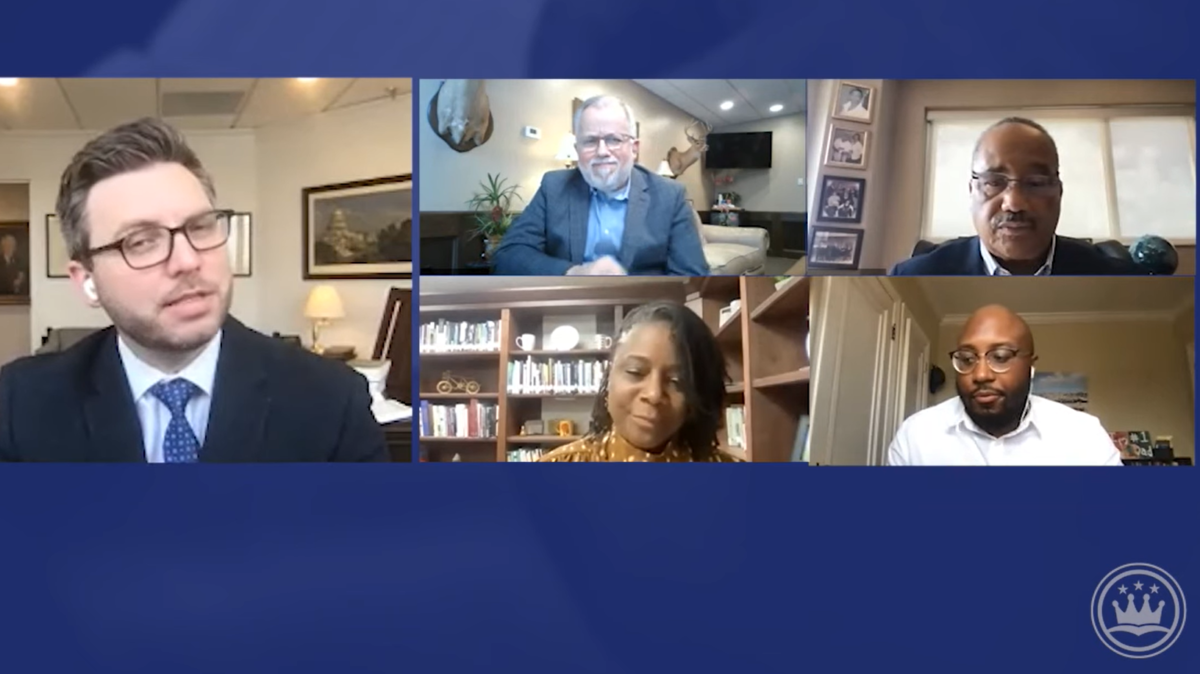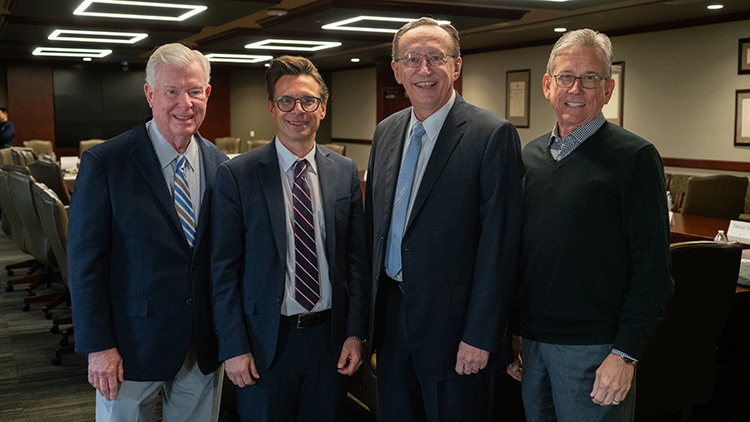Authentic, gospel-centered relationships are integral to racial unity. That was the common message of participants in a recent panel on racial reconciliation held by the Ethics & Religious Liberty Commission of the Southern Baptist Convention.
“We want the fruit of reconciliation without the relationship,” said Jon Kelly, lead pastor of Chicago West Bible Church. “It doesn’t matter how many panel discussions you watch. It doesn’t matter how many books you read, how many conferences you go to — none of that will do better than dinner table ministry.”
Kelly was one of four panelists for the online event, “Pursuing Unity: A Discussion of Racial Reconciliation Efforts and the SBC,” moderated by ERLC acting president Brent Leatherwood. Kelly was joined by pastor Ed Litton, SBC president; pastor Fred Luter, the first African American president of the SBC; and Missie Branch, assistant dean of students to women and director of graduate life at Southeastern Baptist Theological Seminary.
Sharing life
Kelly said greater unity comes when relationships are about more than educating each other about modern issues and concerns.
“Can we just hang out and eat ice cream? [Talk about] what kind of movies you like? To hear what was it like growing up you wherever you grew up in Alabama,” Kelly said. “I grew up in West Philly, North Philly, you know, like let’s just talk about life. What sports teams you like. … And as we get to know one another and love one another, we’ll get to learn about each other’s culture. You will immerse in each other’s context. … Until we eat bread together and fellowship together, we won’t make any progress.”
Litton, pastor of Redemption Church in Saraland, said he and other pastors in the Mobile area began gathering to address racial conflict in the area but instead began to fellowship over shared meals.
“God transformed our hearts with one another,” Litton said. “We fell in love with one another, and we started serving the Lord together.”
Southern Baptists across the nation can do the same, Litton said.
“Start to get to know each other. Listen to each other. Humble yourself to learn something you thought you knew and understood, but you didn’t,” he suggested.
Luter, pastor of Franklin Avenue Baptist Church in New Orleans, noted the historic significance of having two prominent SBC leadership positions filled by African Americans. Willie McLaurin serves as interim president and CEO of the SBC Executive Committee, and California pastor Rolland Slade serves as chair of the Executive Committee.
The SBC has grown “leaps and bounds” in racial inclusion, he said. More progress can be made in selecting diverse leaders across SBC entities, Luter said, but the battle, which is called a spiritual one, is not over.
Enemy’s attack
“We as people of God must recognize the enemy’s attack in all of this,” Luter said. “This is spiritual warfare of the enemy that we cannot, as blood-washed, born-again, baptized believers in Jesus Christ, come together. … The separation we have because of our skin color is an attack of the enemy.”
One of the biggest challenges is the “lack of humility” and how that is expressed on social media, Kelly said.
“It’s one thing for Christians to disagree,” Kelly said. “I think what’s very discouraging for me is the sarcasm and tone and the belittling, and the way that we do it I don’t think we realize kills our witness, especially when it’s coming from men and women who profess Christ and who have roles within denominations, and our pastors as well. And I think being slow to speak, quick to listen, slow to anger would really help us all.”
Leatherwood affirmed Kelly’s sentiment.
“We need to have the fear of God before that first keystroke,” he said. “That will preach for sure.”
Branch said much of the vitriol expressed online comes from “fear and a lack of trust,” but the world is watching and listening.
“To the world, we’re not able to present a unified message of what it means for us to come together as believers in Christ from every color, every stripe, every economic background,” Branch said.
“We have to remember that we are all broken, and we come in humility. Then we can honestly work together.”
To see full discussion, click here.








